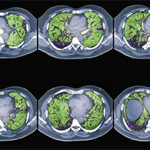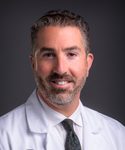Pulmonologists could help rheumatologists by pushing for additional clinical trials.
“Moving forward with novel approaches to treatment of ILD in CTD mandates effective clinical trials,” Dr. Fischer says, “trials that can be successfully implemented across numerous centers internationally. The current reality is that it is hard to envision large trials in CTDs with ILD other than for scleroderma ILD. The next frontiers of RA-ILD and myositis ILD will need effective networks to conduct clinical trials. [Because] these patient cohorts are encountered by rheumatologists and pulmonologists, successful study design and trial implementation will require effective interdisciplinary collaboration.”
Such collaboration needs to start as early as fellowship training, he suggests.
“The structuring of fellowships should encourage/mandate dedicated interdisciplinary exposure—clinically, with conferences and in research. For rheumatology, this obviously extends beyond the lungs and pulmonary colleagues, to the numerous other organ systems and specialties within which we need to effectively collaborate.”
The bottom line, Dr. Fischer says, is that teamwork is key “because patients really value knowing their providers are collaborating around their care. They value knowing that we talk to each other and that we share our perspectives—that we are a team.”
Patients are getting what they want then. In the past few years, a number of multidisciplinary clinical CTD-ILD networks have been established, and “these can help optimize the clinical evaluation and management of patients with CTD-ILD.”
Dr. Fischer would like to see additional networks established to help further what he calls “the care and research of this complex patient population.”
“I think these networks are a huge step forward,” he says, “and I am hopeful this trend will evolve into a new standard.”
Richard Quinn is a freelance writer in New Jersey.


